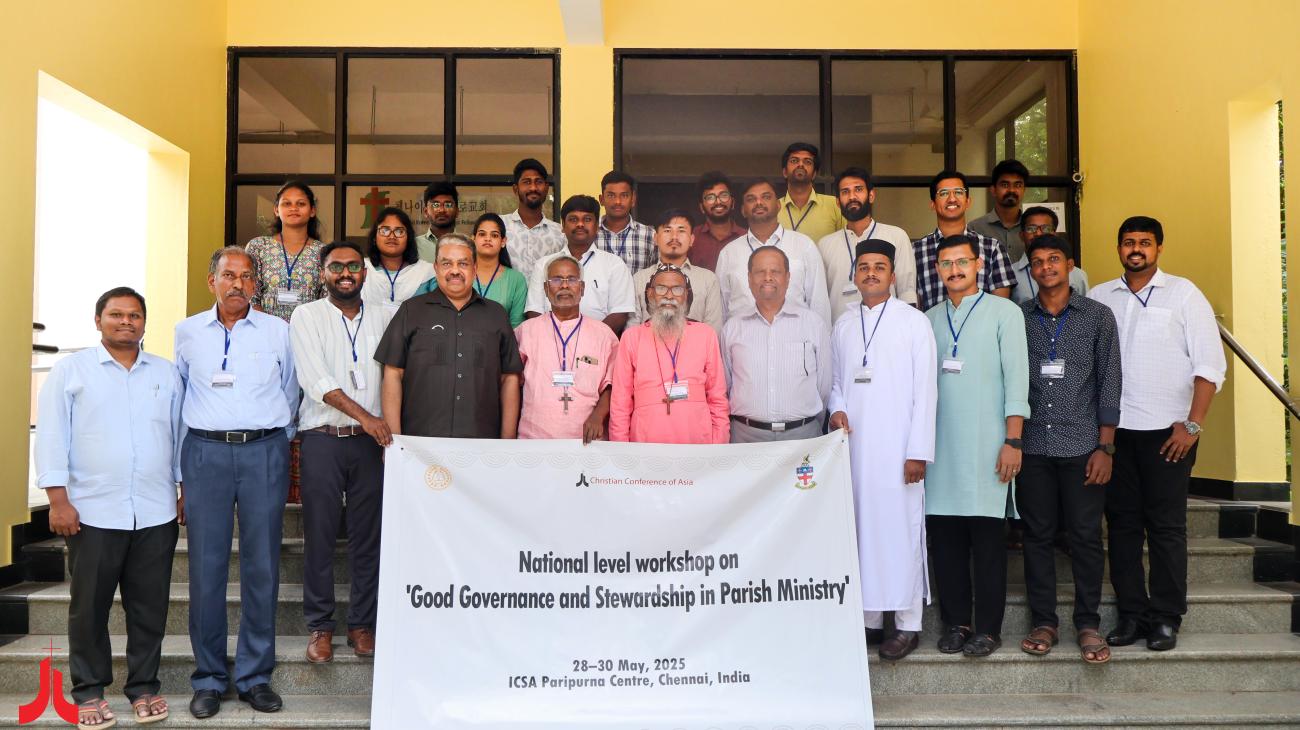“To lead, you may need to suffer,” says Metropolitan Yakob Mar Elias to young seminarians at CCA workshop

Chennai, India: Emphasising the ethos and values of servanthood leadership in pastoral ministry, His Grace Yakob Mar Elias, Metropolitan of the Malankara Orthodox Syrian Church, addressed young seminarians in South India with the reminder: “To lead, you may need to suffer.”
Delving deep into the theological foundation of Christian leadership, the thematic address was delivered by Metropolitan Mar Elias of the Malankara Orthodox Syrian Church. Drawing from various biblical passages, he reminded the participants that “leadership is not about privilege or position, but about servanthood, grace, sacrifice, and participation in Christ’s suffering in being God’s stewards in pastoral ministry.”
As part of its ongoing series of national workshops held across Asian countries, the Christian Conference of Asia (CCA), in collaboration with the Inter Church Service Association (ICSA), is currently conducting a three-day national-level workshop on “Good Governance, Stewardship, and Integrity Leadership in Parish Ministry” from 28 to 30 May 2025 at the ICSA Paripurna Centre in Chennai, India.
The workshop has brought together 20 final-year theological students from institutions affiliated with the Senate of Serampore College (University), representing various churches across southern India.
The CCA General Secretary, Dr Mathews George Chunakara, in his opening address, outlined the objectives of the workshop and CCA’s aim to equip emerging leaders in parish ministry with theological, ethical, and practical tools helpful for good governance, stewardship, and integrity leadership in pastoral ministry.
Metropolitan Mar Elias spoke on the concept of theosis (divine participation), stressing that pastoral ministry is not achieved by merit but by grace. Citing biblical figures such as David, Paul, and Christ himself, he elaborated on leadership qualities rooted in repentance, kenosis (self-emptying), and a willingness to carry the cross in daily ministry. He also reflected on the tension between “greed and need,” and the urgent necessity for biblical economics in the Church that prioritises harmony over the accumulation of money.
Further sessions included a presentation by Dr Moses P. Manohar on the need for integrity and ethical leadership within Indian churches.
Bishop Sharma Nithyanandam of the Church of South India (CSI) shared five pivotal foundations of biblical governance: Justice, Integrity, Upbuilding, Vision, and Creativity, framing stewardship not merely in administrative terms, but as a divine vocation of service. “Power is safe only in the hands of those who are humble and those who have integrity while leading the Church,” said the Bishop of the CSI Vellore Diocese to the prospective pastors and priests.
Dr Mathews George Chunakara, who explored various leadership models in ecclesial traditions, underscored the urgency of recovering the servant-leadership model rooted in Christ’s example.
"While the Church has flourished into an illustrious and influential institution today, it is also facing a predicament of confusion and crisis. In this context, Jesus’ teaching on servanthood leadership serves as a guiding principle for present-day leaders in the Church," added the CCA General Secretary.
The workshop continues over the next two days with sessions on conflict resolution in church administration, integrity leadership and pastoral witness, and contextual discussions on church management.
For more photos of Day 1 of the National Workshop, please click here (photo gallery)











